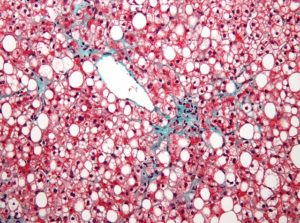
Insulin in type 2 diabetes
Type 2 diabetes (T2D) affects millions of people worldwide. Although endogenous insulin levels in patients with T2D are often high, exogenous insulin can be prescribed when blood glucose targets are not met. However, the benefits of using insulin in this condition are not clear. A new study has found no significant evidence of long- term efficacy of insulin on clinical outcomes in T2D.
The researchers carried out a systematic review and meta-analysis to investigate the efficacy and safety of insulin versus hypoglycaemic drugs or diet/placebo on clinically relevant endpoints. Twenty randomized clinical trials, reporting on outcomes in 18 599 patients, were included in the analysis.

Using insulin did not affect cardiovascular mortality or all-cause mortality compared to hypoglycaemic drugs or diet/placebo. The risk of hypoglycaemia was higher in the insulin group compared to the group using oral hypoglycaemic drugs, but using insulin potentially reduced short-term hyperglycaemia. More long-term trials on the clinical efficacy of insulin in the treatment of T2D are needed.
Erpeldinger et al., BMC Endocrine Disorders
Robotic walker training in stroke patients
Stroke patients often suffer gait and balance dysfunctions which can reduce their ability to perform daily activities. The i-Walker is a robotic rollator that detects the force imposed by the patient and can adjust the amount of help it gives to the side with a deficit. New results suggest that using such a robotic device during therapy can improve walking performance and balance in patients affected by mild to moderate stroke.
The researchers conducted a randomized controlled trial involving forty-two patients with hemiparesis caused by a first-ever unilateral stroke, who were randomized to the standard therapy group or the i-Walker group.
Over four weeks, both groups received twenty sessions of standard conventional walking-oriented therapy, then the control group continued this therapy for another twenty sessions, while the i-Walker group performed conventional walking training using a servo-assistive robotic walker.
Participants in both groups showed improved walking performance but the use of the i-Walker resulted in increased walking speed and walking capacity. During a six-month follow up period the i-Walker group had a lower number of falls.
Morone et al., Journal of NeuroEngineering and Rehabilitation
Vitamin D supplementation in non-alcoholic fatty liver disease
 Non-alcoholic fatty liver disease (NAFLD) is a common liver condition without medically approved treatment, often present in patients with type 2 diabetes (T2D). Low levels of vitamin D have been correlated with NAFLD and disease severity.
Non-alcoholic fatty liver disease (NAFLD) is a common liver condition without medically approved treatment, often present in patients with type 2 diabetes (T2D). Low levels of vitamin D have been correlated with NAFLD and disease severity.
The results of a new study suggest that supplementation with high doses of vitamin D does not improve hepatic steatosis or metabolic and cardiovascular parameters in T2D patients with NAFLD.
In a randomized controlled trial, 65 patients with T2D and NAFLD were randomized to receive oral supplementation with cholecaciferol (2000 IU/day) or placebo, for 24 weeks.
Serum levels of vitamin D increased significantly in the intervention but not in the control group. Changes in hepatic fat content did not differ between the groups. There were also no apparent differences in hepatic injury as assessed by changes in serum transaminases, CK18-M30 and N-terminal procollagen III propeptide levels, or in metabolic and cardiovascular parameters.
Barchetta et al., BMC Medicine
Clinical Insights are written by Magdalena Morawska and Stephanie Harriman
Comments